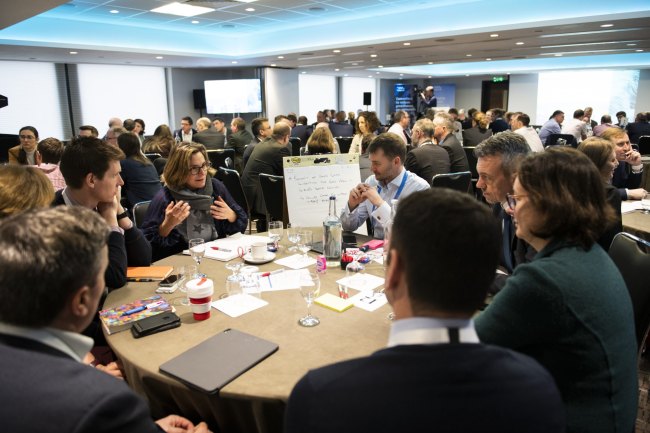News
Delivering a Net Zero Water Sector
Water UK chief executive Christine McGourty hosted the water sector’s first net zero carbon event bringing together more than 100 water company, regulator and supply chain staff in central London on Thursday 5 March 2020.
The event was the first opportunity for the whole sector to discuss in detail exactly how the challenging goal of getting the sector to net zero carbon by 2030 will be achieved. The water industry is leading the way on emissions reduction and is the first sector in the UK to make such a commitment.
Project consultants Ricardo and Mott MacDonald kicked off proceedings by revealing to delegates how the water industry is currently performing on carbon emissions and how far the industry has come in recent years. The water industry has already taken some significant steps to reduce operational emissions, for example, cutting gross emissions by 43% since 2011 despite a growing population and the impacts of climate change.
In addition, the consultants set out options for companies to consider as they develop their future plans. The options included:
- Reducing emissions resulting from the wastewater treatment process – cutting the amount of methane and other gases being released from sewerage
- Increased energy efficiency– putting in place cutting-edge systems to manage energy
- Increasing self-generated renewables– such as solar power and anaerobic digestion
- Purchasing green electricity– low carbon sources such as wind power and biomass
- Providing biogas to the energy grid– so other industries have access to low carbon gas
- Rolling-out electric and alternative fuel vehicles– hydrogen and vegetable oil-powered
- Moving to electric-powered construction equipment– such as diggers
The presentation led to robust discussion amongst delegates as they considered the opportunities and challenges facing the industry. Attendees were encouraged to think about their role in helping to get to net zero as well the role of their business and the wider sector.
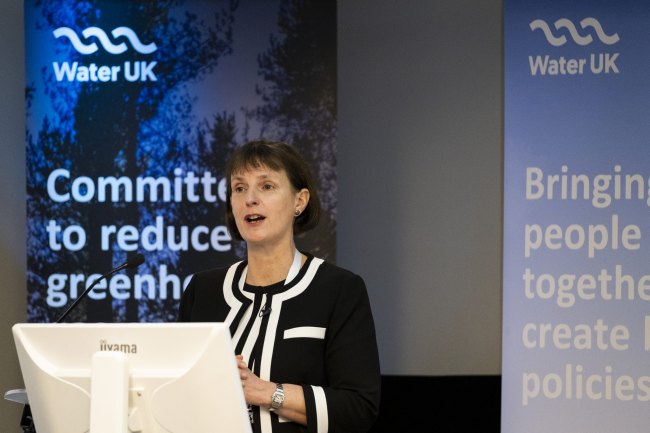
The event also featured keynote speeches from the three company chief executives sponsoring the 2030 commitment. Heidi Mottram, Northumbrian Water chief executive, opened the event with an overview of the wider context of the climate change debate before Peter Simpson, Anglian Water chief executive, delved deeper into the situation facing water companies and the opportunities available for the sector. Finally, Liz Barber, Yorkshire Water chief executive, appealed to delegates to show leadership and emphasised the importance of cooperation and collaboration, not only within the industry and supply chain but with other sectors and stakeholders as well.
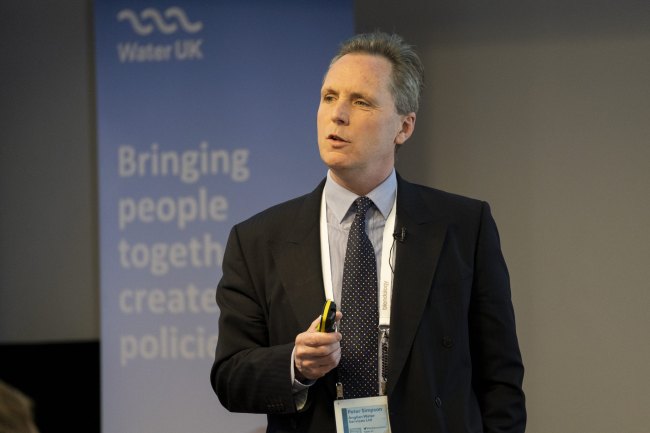
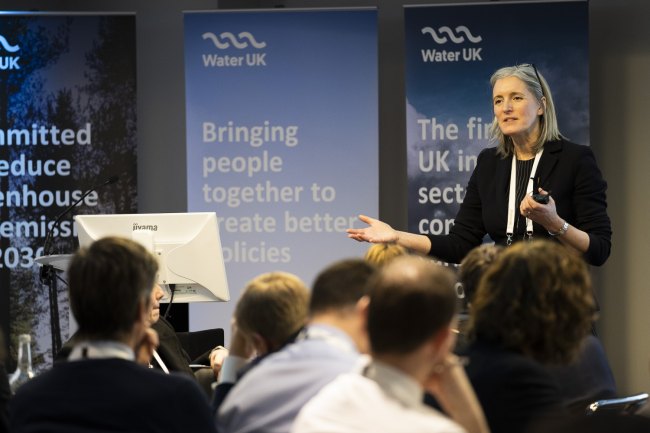
Two powerful videos shown at the event ensured delegates heard the voice of the younger generation with school pupils outlining their views on climate change and the role we all play in making a difference. The views of these ‘future customers’ served as a sobering reminder to those present of the growing cost of inaction.
The event concluded with a panel discussion as Christine McGourty, Peter Simpson and Liz Barber were joined by Ian McAulay, Southern Water chief executive, and Rachel Fletcher, Ofwat chief executive. The panellists were asked to give their reflections on the event and the discussions as well as considering potential next steps before a question and answer session with delegates. Rachel Fletcher in particular took the opportunity to challenge the industry to go the extra mile and do everything they can on the commitment.
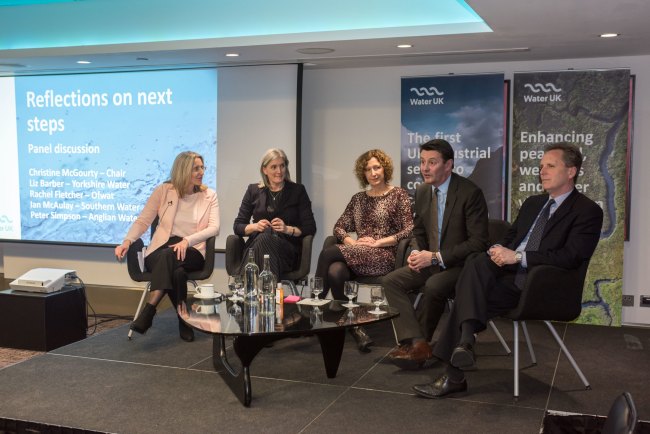
Discussions focused on the need for transparency to ensure stakeholders and customers were kept informed of progress while the important role of government and regulators was stressed.
The consultants, working with Water UK, will now take the ideas and feedback from the event to inform the next phase of work ultimately leading to a full routemap which will be published in the summer.
